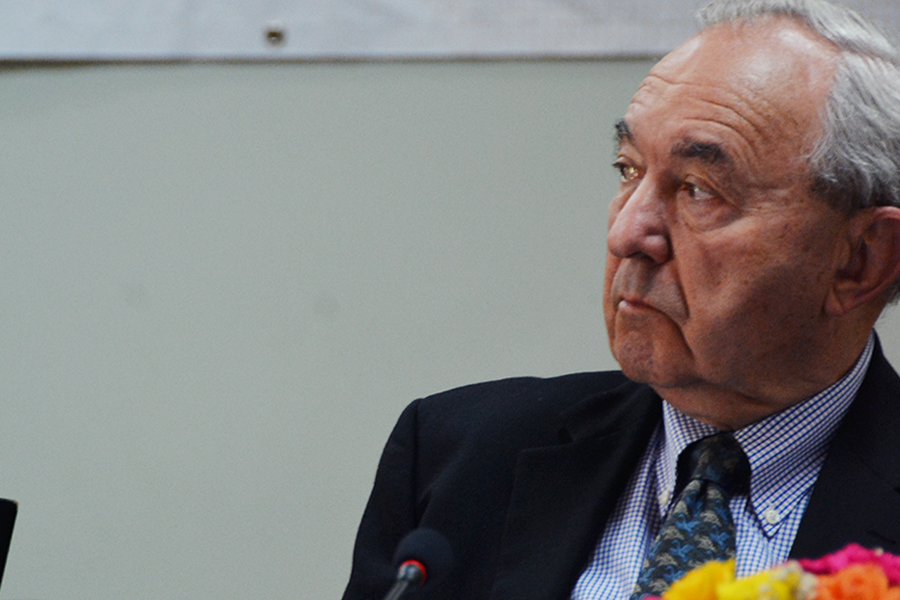The Africa Group for Justice and Accountability (AGJA), which held its bi-annual strategic meeting and symposium, in Arusha, Tanzania between 17-19 October 2016, has expressed deep concern over the South African government’s declaration that it has given notice to the United Nations of its withdrawal from the Rome Statute of the International Criminal Court (ICC).
In a statement issued today, the group expressed “serious concern at the government’s announcement that it will seek the repeal of the Implementation of the Rome Statute of the International Criminal Court Act” noting that “South Africa is an indispensable ally of international justice and the ICC and that it had played a leading role in the creation of the Court and has been a key supporter of the institution since the ICC became a functioning reality in 2002.”
The Africa Group’s membership includes two South Africans: the former UN High Commissioner for Human Rights Navi Pillay, and former Chief Prosecutor of the United Nations International Criminal Tribunal for Rwanda and the former Yugoslavia Richard Goldstone. In adopting their statement, the Africa Group pointed out that “the South African government’s tradition of supporting human rights and as a leading voice on accountability would be undermined by a withdrawal from the ICC” and urged the government of South Africa to explore any space for “reconsideration of withdrawal.”
Commenting on the decision, Richard Goldstone described it as “unfortunate on legal, moral and political grounds.” He added that “President Nelson Mandela, together with his administration, was a firm supporter of the ICC” and that he hoped “the South African Judicial system, would yet again have to rescue the executive from acting in conflict with our Constitution.”
The Africa Group statement went on to call on the South African Parliament “to reject any repeal of the Implementation of the Rome Statute of the International Criminal Court Act” adding that the Africa Group supported the work of “all domestic legal groups in guaranteeing that any process of withdrawal is democratic, legitimate, and reflects the will and interest of the South African people.”
This development, following hard on the heels of the recent decision by Burundi to opt out of the Court, has led the group of eminent African jurists, and human rights activists to incorporate in their statement an appeal to “African states, and civil society groups in the country to engage and work with South Africa” and encourage “the government to retain its membership in the ICC and maintain its position as a leader in the global fight for justice and accountability.”
The statement concluded by stressing “that the concerns of all ICC member-states can be heard and considered at the Assembly of States Parties as well as other appropriate legal and diplomatic channels.” The Africa Group stressed that in line with its mandate and its Kilimanjaro Principles of International Justice and Accountability adopted during the strategic meeting held in Arusha and announced at the opening of the symposium, “the Africa Group offers its expertise as well as its mediation and facilitation capacities to South Africa, the ICC, and all other relevant actors.”
The recently concluded symposium “Towards a System of International Justice” was attended by representatives of the African Union as well as some 80 human rights activists, experts on international criminal law, and civil society organisations from across Africa and other parts of the world, and was officially opened by Tanzanian Chief Justice, Mr. Mohamed Chande Othman, who is also a member of the AGJA.
Whilst in Arusha, the Africa Group also organised a workshop from 21 to 22 October 2016, for first responders to scenes of mass crimes, as part of its core capacity building activities, with participants from Tanzania, Kenya, Uganda, Rwanda, South Africa and Zimbabwe.
The Africa Group, consisting of 12 members, has recently been engaged in stakeholder diplomacy meetings with UN Security Council Member States in New York, with the ICC in The Hague, and with the justice sectors of Kenya, South Africa and Namibia and just concluded a mission to Bangui in the Central African Republic to support the establishment of the Special Criminal Court, which was led by AGJA member and former Transitional President of the Central African Republic Catherine Samba-Panza.
Background: The Africa Group for Justice and Accountability was established to support efforts to strengthen justice and accountability measures in Africa through domestic and regional capacity building, advice and outreach, and enhancing co-operation between Africa and the ICC.
Its membership includes senior African experts on international criminal law and human rights, including political figures, members of international and domestic tribunals, and human rights advocates.
The members of the Africa Group for Justice and Accountability are:
- Dapo Akande (Nigeria) Professor of Public International Law, University of Oxford
- Femi Falana (Nigeria) Human rights activist and lawyer
- Richard Goldstone (South Africa) Former Chief Prosecutor of the United Nations International Criminal Tribunal for Rwanda and the former Yugoslavia
- Hassan Bubacar Jallow (Gambia) Former Prosecutor at the International Criminal Tribunal for Rwanda and International Residual Mechanism for Criminal Tribunals
- Tiyanjana Maluwa (Malawi) Laddie Montague Chair in Law, Pennsylvania State University School of Law
- Athaliah Molokomme (Botswana) Attorney General of Botswana
- Betty Kaari Murungi (Kenya) Independent Consultant on Human Rights and Transitional Justice
- Mohamed Chande Othman (Tanzania) Chief Justice of Tanzania
- Navi Pillay (South Africa) Former UN High Commissioner for Human Rights
- Catherine Samba-Panza (Central African Republic) Former Transitional President of the Central African Republic
- Fatiha Serour (Algeria) Director of Serour Associates for Inclusion and Equity
- Abdul Tejan-Cole (Sierra Leone) Executive Director of the Open Society Initiative for West Africa
For all press enquiries or to arrange interviews please contact:
Joseph Roberts-Mensah
[email protected]
[email protected]


